Banh Mi Sandwich: The Spicy, Savory Wonder of Global Spice Traditions
If you've ever bitten into a Banh Mi and felt like your taste buds just joined a global spice tour — you're not alone. This iconic Vietnamese sandwich is a flavor-packed masterpiece that brings together East meets West in one handheld delight. Let's dive into the spicy, savory story behind the Banh Mi and why it’s become a star in Global Spice Traditions.
Table of Contents
- What Is a Banh Mi Sandwich?
- A Brief History of the Banh Mi
- The Magic Ingredients Behind a Perfect Banh Mi
- Spice Spotlight: How Heat Plays a Role in Banh Mi
- How to Make Your Own Banh Mi at Home (With Pro Tips)
- Banh Mi Around the World: Creative Twists on the Classic
- Conclusion
What Is a Banh Mi Sandwich?
In Vietnamese, "banh" means bread, and "mi" refers to wheat — so technically, Banh Mi is a wheat-based sandwich. But don't let that simple translation fool you. This isn’t your average turkey and mayo sammie. The traditional Banh Mi consists of:
- Crispy French baguette
- Pâté or mayonnaise
- Grilled meats (like pork belly or chicken)
- Fresh veggies (carrots, cucumbers, cilantro)
- And often, a kick of heat from chili peppers or Sriracha
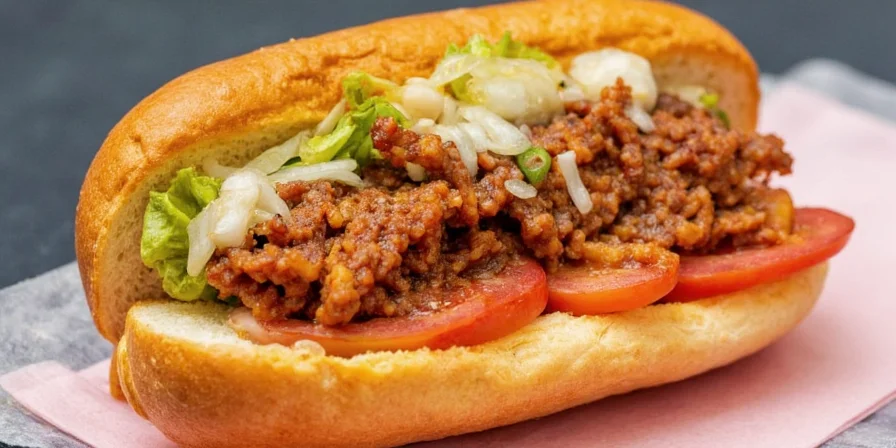
A Brief History of the Banh Mi
The Banh Mi is more than just food; it's history on a bun. During the French colonization of Vietnam in the 19th century, the baguette came to Indochina, but locals transformed it with their own spices, pickled veggies, and local meats. What was once a colonial import became a national treasure.
By the 1950s and 60s, Banh Mi stalls began popping up across Ho Chi Minh City (Saigon), and soon the sandwich found its way into hearts worldwide. Today, it's celebrated as a cultural hybrid — part French, part Vietnamese, all delicious.
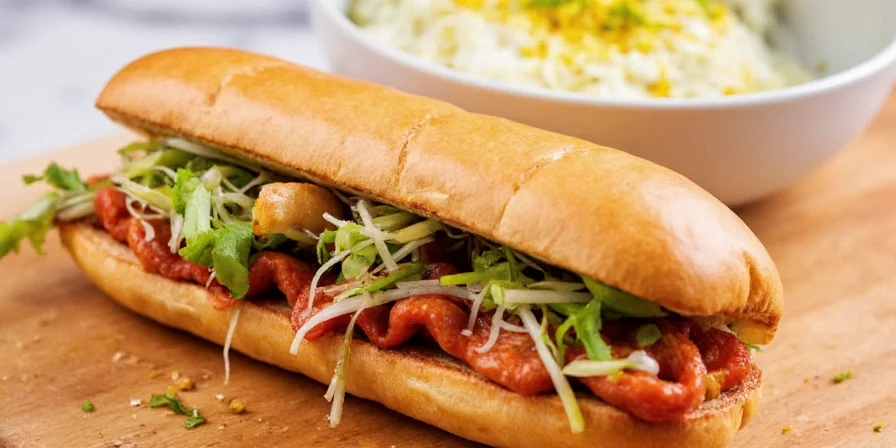
The Magic Ingredients Behind a Perfect Banh Mi
Let’s break down the key components that make a Banh Mi unforgettable. Think of this as your cheat sheet for crafting an authentic version at home.
| Ingredient | Role in the Banh Mi | Spice Level (Optional) |
|---|---|---|
| French Baguette | Crispy crust, soft inside — holds everything together | 0/10 |
| Meat (Pork, Chicken, Tofu) | Protein punch | Varies |
| Pâté or Mayonnaise | Creamy base layer | 0/10 |
| Pickled Vegetables | Tangy crunch | 0–1/10 |
| Chili Pepper / Sriracha | Fiery finish | 5–10/10 |
Spice Spotlight: How Heat Plays a Role in Banh Mi
While the Banh Mi isn’t traditionally known for being ultra-spicy, it offers plenty of room for customization. In Vietnam, many street vendors offer a small chile sauce on the side or even whole bird’s eye chilies tucked into the sandwich.
Why add spice? Because it balances the richness of the meat and pâté while adding depth to the overall flavor profile. Plus, it wakes up your palate!
Spice Hacks for Banh Mi:
- Add a few drops of Sriracha to your mayonnaise before spreading
- Include fresh sliced Thai chili or jalapeño slices
- Use spicy pickled mustard seeds for extra kick
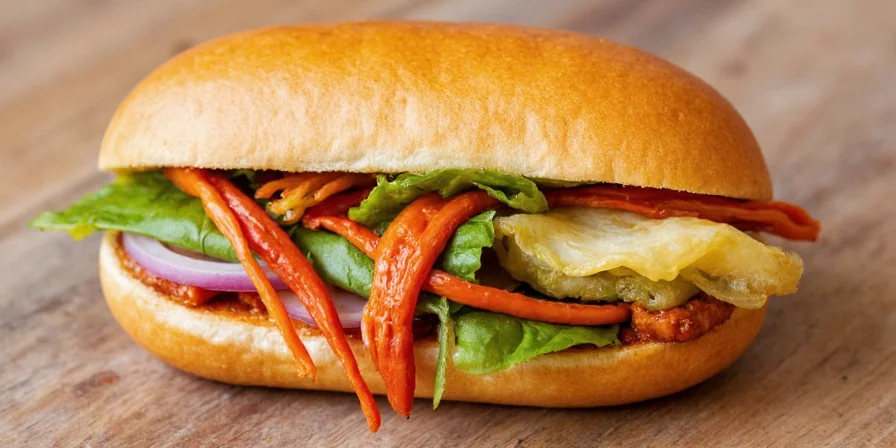
How to Make Your Own Banh Mi at Home (With Pro Tips)
You don’t need to fly to Vietnam to enjoy a killer Banh Mi. Here's how to build one like a pro:
- Toast your baguette lightly — keeps it crispy without drying it out
- Layer pâté or spicy mayo first — prevents the bread from getting soggy
- Add protein next — grilled pork belly is classic, but tofu works great too
- Pile on the pickled veggies — carrots, daikon radish, cucumber
- Finish with fresh herbs and heat — cilantro, mint, chili slices, or a drizzle of hot sauce
Top 5 Pro Tips for the Ultimate Banh Mi Experience:
- Don’t skip the pickling step — it adds crunch and acidity that cuts through the richness.
- Use day-old bread — fresher baguettes can get too chewy when toasted.
- Pick your protein wisely — slow-cooked BBQ pork or lemongrass-marinated chicken are excellent choices.
- Play with heat levels — use different types of chili sauces or make your own sriracha aioli.
- Serve immediately — the longer it sits, the softer the bread becomes.
Banh Mi Around the World: Creative Twists on the Classic
As the Banh Mi gained global popularity, chefs started experimenting. Some of these twists have gone viral, while others are just plain weird (but fun to try). Here’s a quick rundown:
| Country/City | Unique Twist | Heat Level |
|---|---|---|
| Los Angeles, USA | “Kalbi Banh Mi” with Korean BBQ beef | Medium |
| New York, USA | Vegan jackfruit Banh Mi with chipotle mayo | Hot |
| Tokyo, Japan | Teriyaki chicken Banh Mi with wasabi mayo | Mild |
| Melbourne, Australia | Beef brisket Banh Mi with truffle oil | Mild |
| Hanoi, Vietnam | Banh Mi Huong — duck liver and lemongrass | Low |
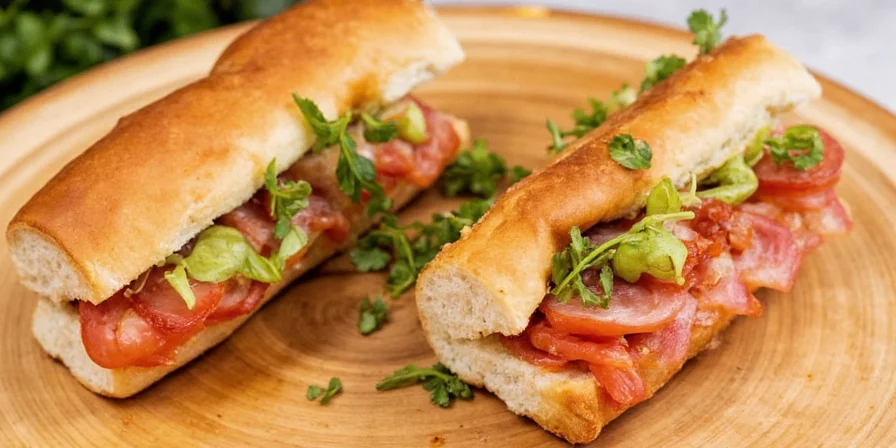
Conclusion
The Banh Mi is more than a sandwich — it’s a cultural icon, a flavor bomb, and a testament to how spices and traditions can blend beautifully across borders. Whether you’re eating it on a bustling Saigon street corner or making it in your kitchen, the Banh Mi invites you to explore the world one bite at a time.
So grab your baguette, fire up the grill, and don’t be shy with the spice. The perfect Banh Mi is yours to create — and eat, and share, and savor.

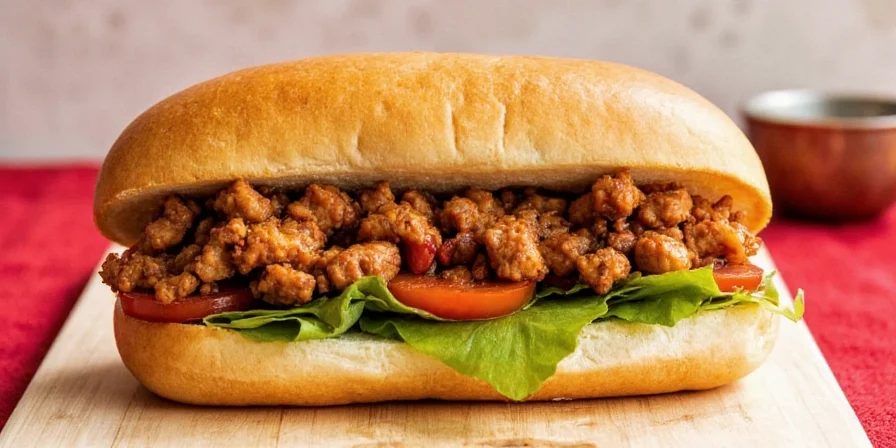









 浙公网安备
33010002000092号
浙公网安备
33010002000092号 浙B2-20120091-4
浙B2-20120091-4